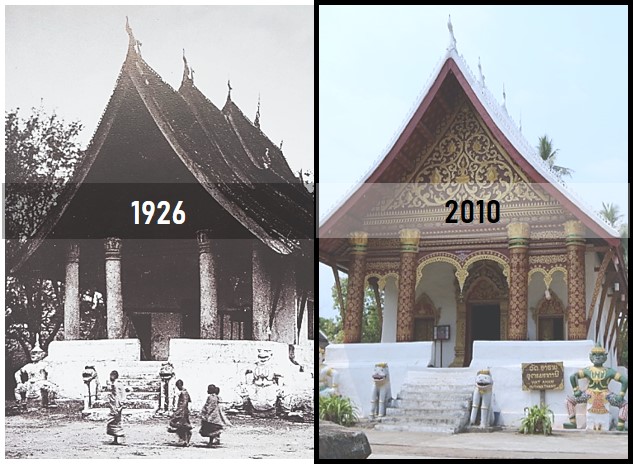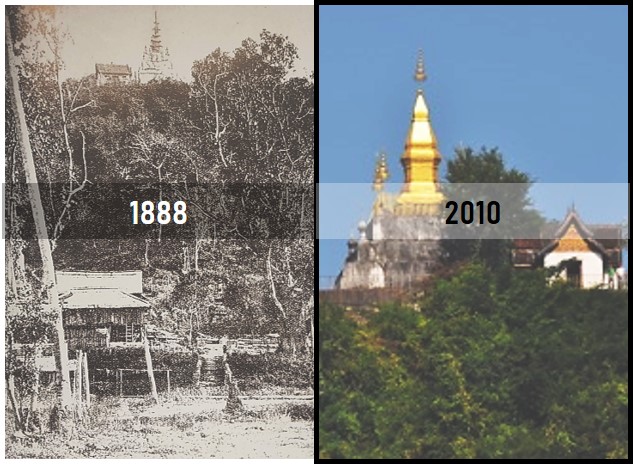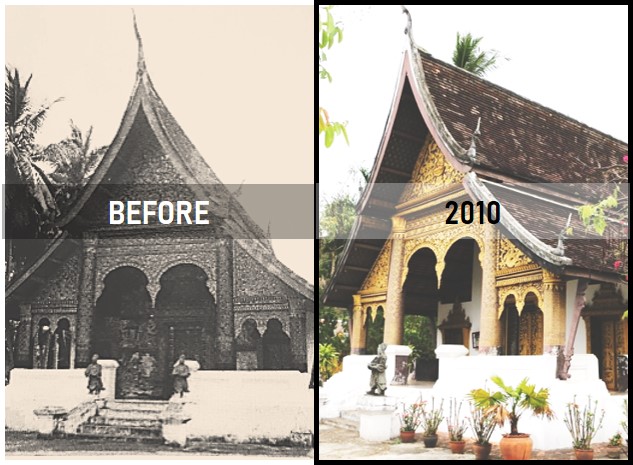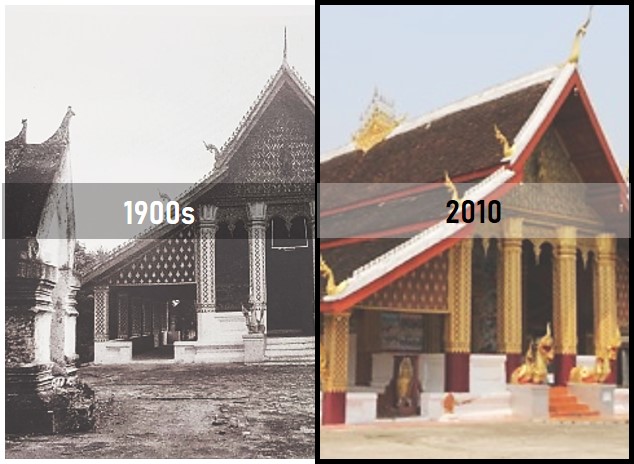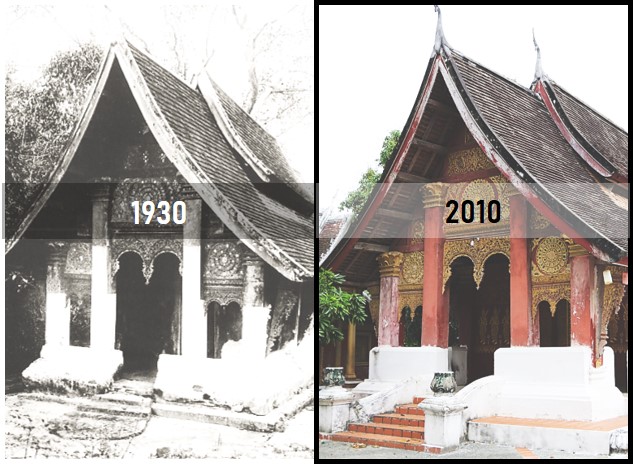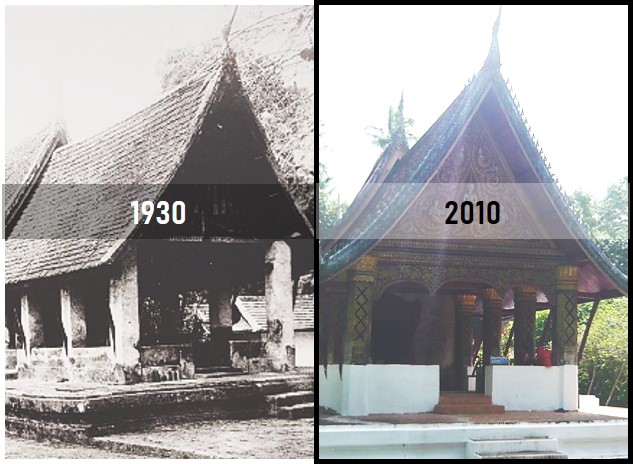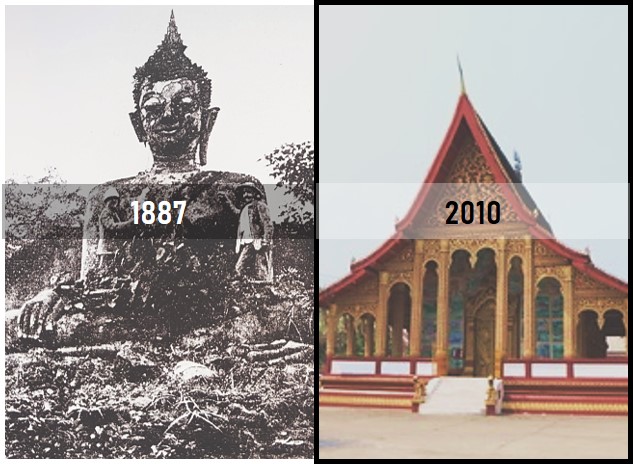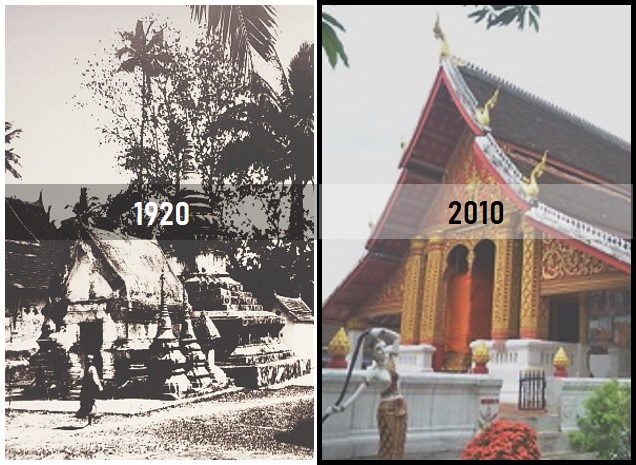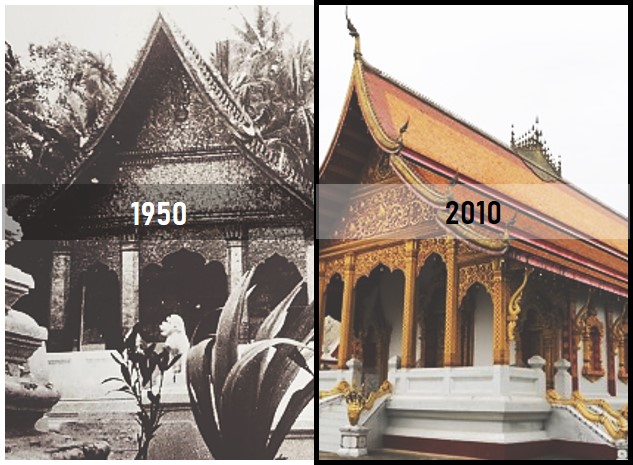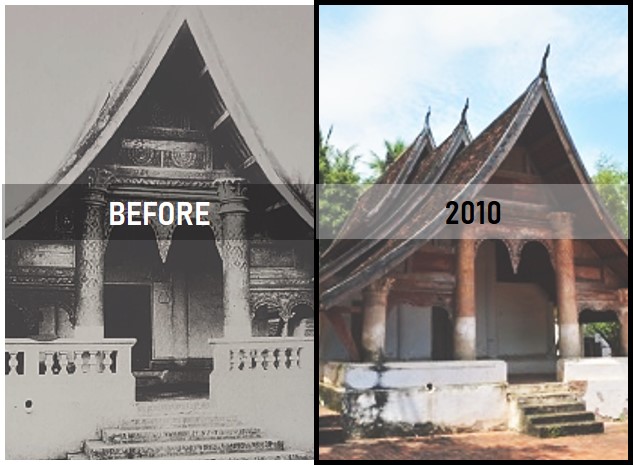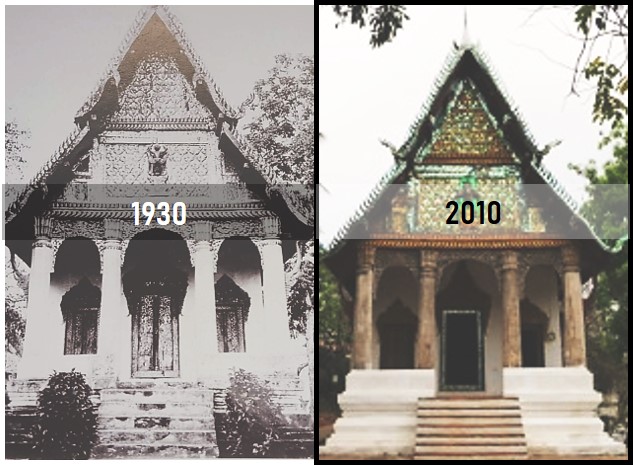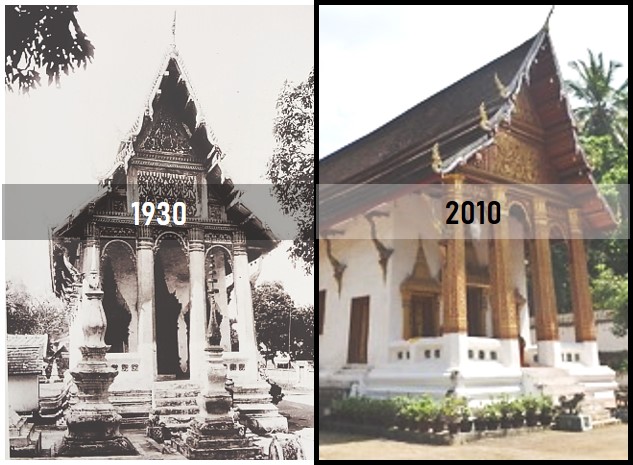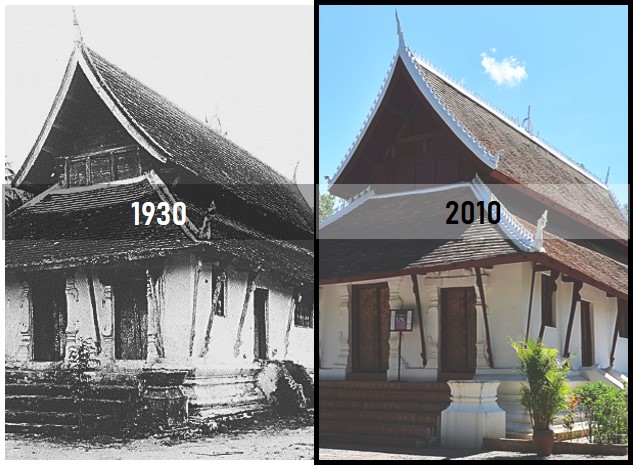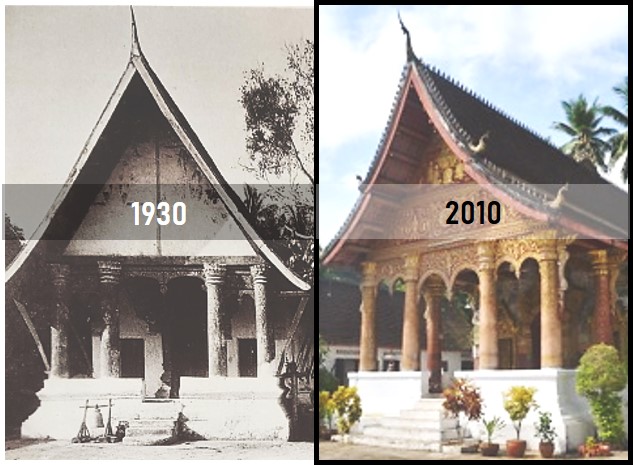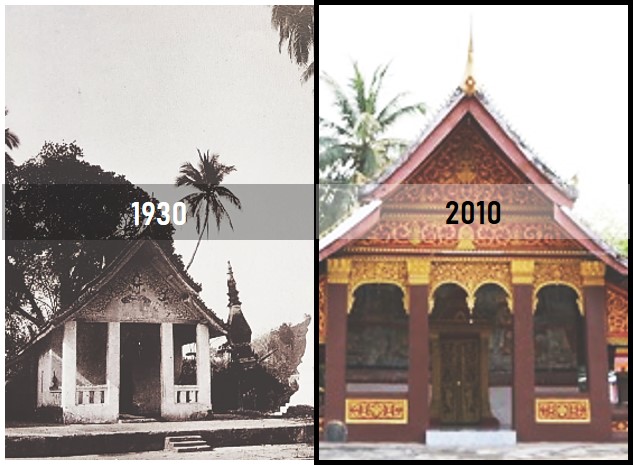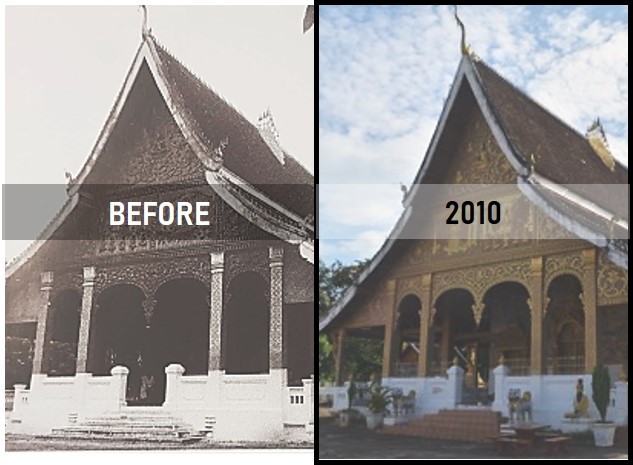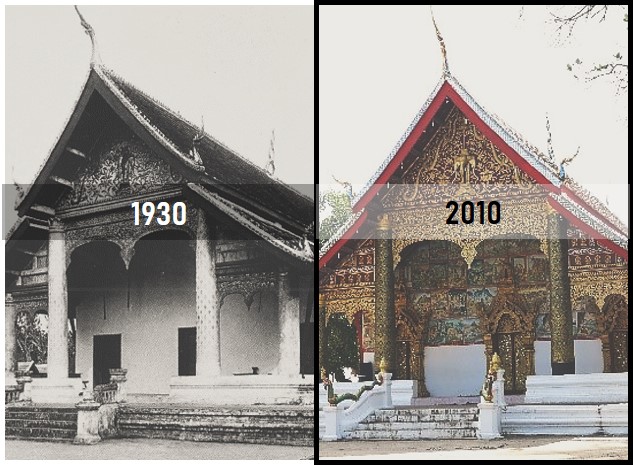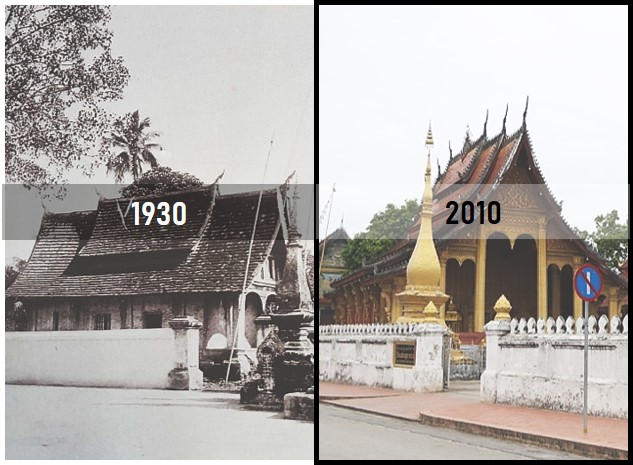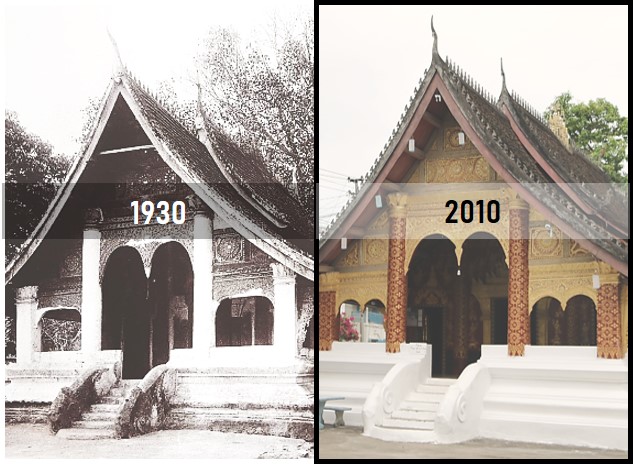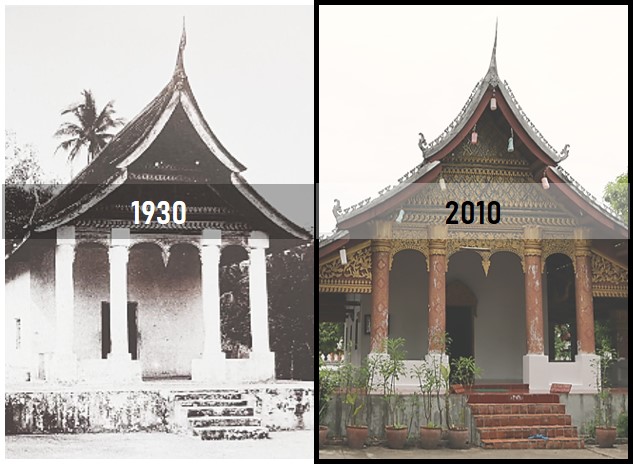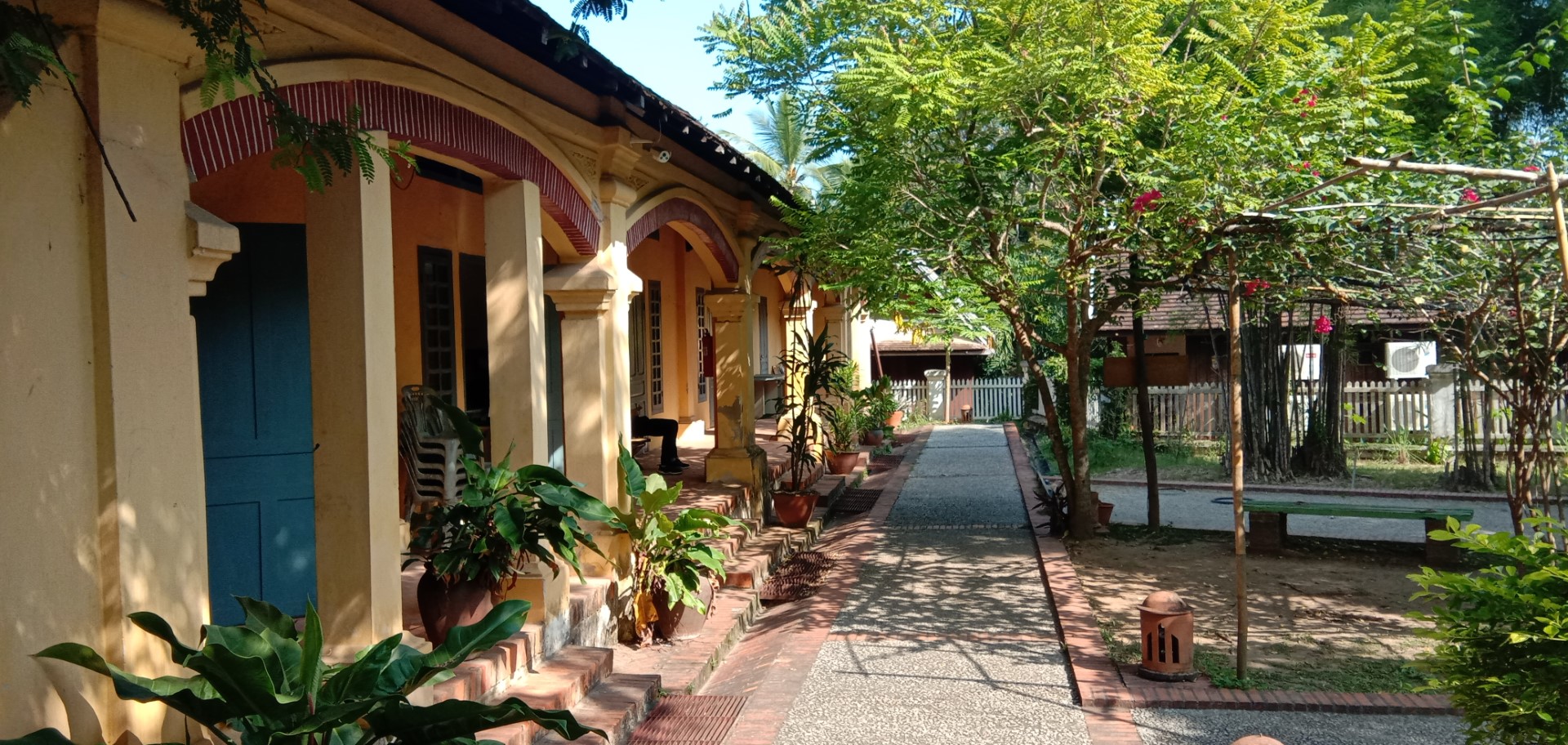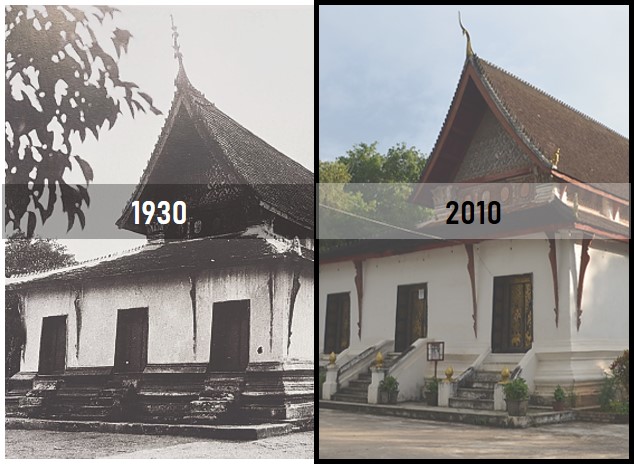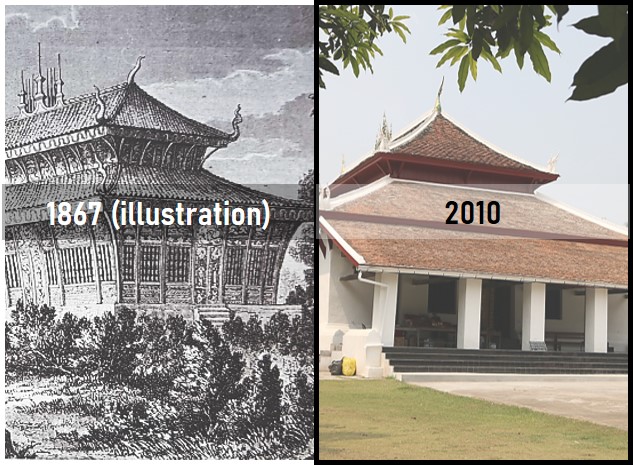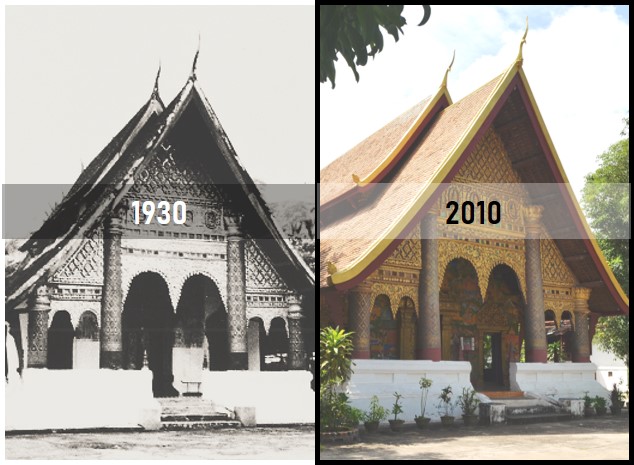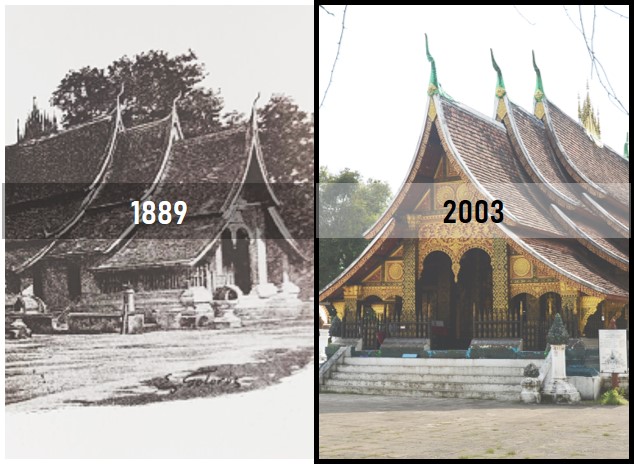TEMPLE GALLERY
Welcome to the gallery homepage of the temples in Luang Prabang!
INSTRUCTION: Click a temple (or vat in Lao) name from the list in the left column, and information of the selected temple will be displayed in this section as shown below.

VAT AHAM
VAT CHOM SI
VAT CHOUM KHONG
Vat Choum Khoung’s name was derived from the Vat’s statue which, as the legend goes, was melted and cast from a bronze gong.
VAT HO XIENG
Vat Ho Xieng has a gilded wooden Buddha in the combat attitude, a rarity in Laotian iconography.
VAT KHILI
Vat Khili is a beautiful building in the Xieng Khuoang style. Its distinctive characteristic lies in the addition of a rear hall and posterior stupa.
VAT LONG KHOUNE
The king usually enjoyed a three-day retreat in Vat Long Khoune before arriving at Vat Xieng Thong’s landing-stage, on the eve of his coronation.
VAT MAI
The Pra Sangkharat, highest Buddhist dignitary in Laos has been residing in Vat Mai since 1894.
VAT MANOROM
VAT MEUNNA
VAT NONG
This ‘’Pond Monastery’’ owes its name to a 211-kg bronze Buddha statue miraculously spared in the 1774 fire which ravaged the town and the monastery.
VAT PAHOUAK
Toothed ornamentation on the roof borders of Vat Pa Houak are executed in the style of Cambodian pagodas as well as those found in Bangkok.
VAT PAKHE
Vat Pakhe’s viharn, walls, door frames, roof shape and façade are all in the Vientiane style.
VAT PAKKHANE
The name of this temple is derived from its location at the mouth of the Mekong’s tributary, the Nam Khane.
VAT PAPHAY
Vat Paphay, also known as the “monastery of the bamboo forest”, was built in a simple style with a single roof. The facade of the Viharn and the wall under the porch were covered with murals.
VAT PHAN LUANG
Vat Phan Luang features a strange Prasat-shaped chapel that houses Buddha statues, two of which are in the posture “Calling on the Earth as witness”.
VAT PHONE XAY
It was named after the large Buddha statue before which king and dignitaries prayed prior to their departure for warfare.
VAT SANGKHALOCK
The authorities in the ancient period gathered in this temple for the ritual sprinkling of the Buddha status and to observe the Pou Gneu Gna Gneu dance.
VAT SENE
VAT SI BOUN HEUANG
Vat Sibouheuang was built in the 18th century Luang Prabang style during the reign of King Sotikakoumane in 1758.
VAT SOP
Vat Sop is a part of a group of four monasteries grouped along the Luang Prabang main road.
VAT THAT
Vat That is one of the most important places for the celebration of the Laotian New Year.
VAT THAT LUANG
Built on the knoll in 1818 by King Manthatourath, Vat That Luang’s monastery comprised the viharn and two large stupas.
VAT VIXUN
Before its partial destruction in the fire that blazed through the town in 1887, Vat Vixun was one of the most imposing monasteries of the old royal town.
VAT XIENG MOUANE
In ancient times, its name, Vat Sieng Mouane or the “Monastery of Melodious Sounds” arose from the harmonies of its drum and gong.
VAT XIENG THONG
Vat Xieng Thong, or “Golden City Monastery,” is the religious emblem of Luang Prabang and one of the highest symbols of Buddhism in Laos.

